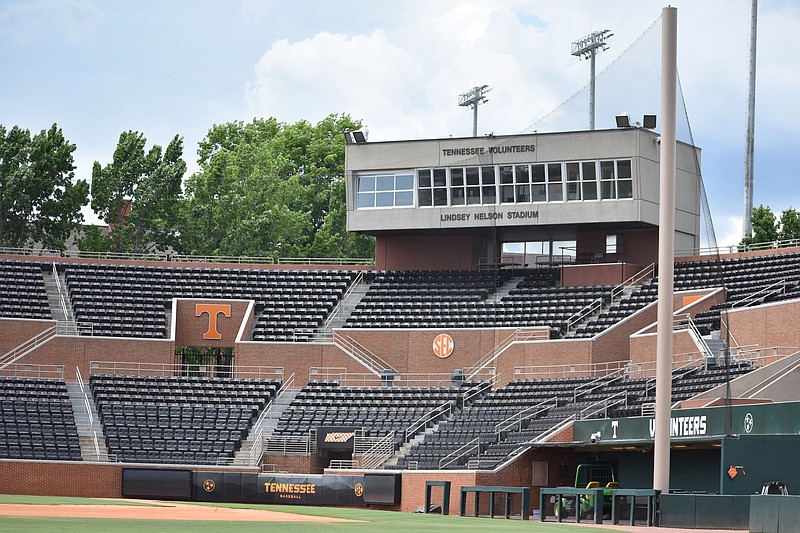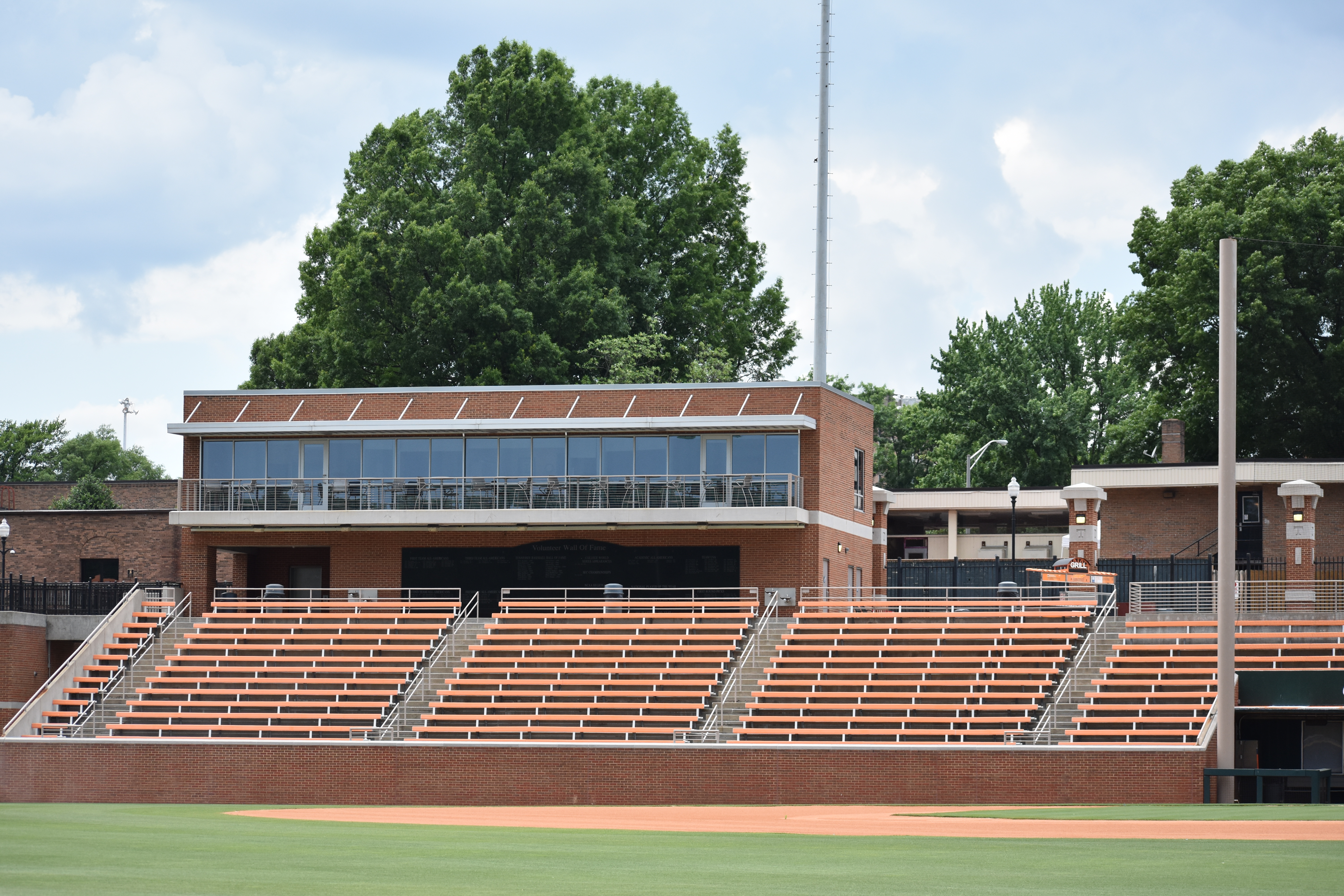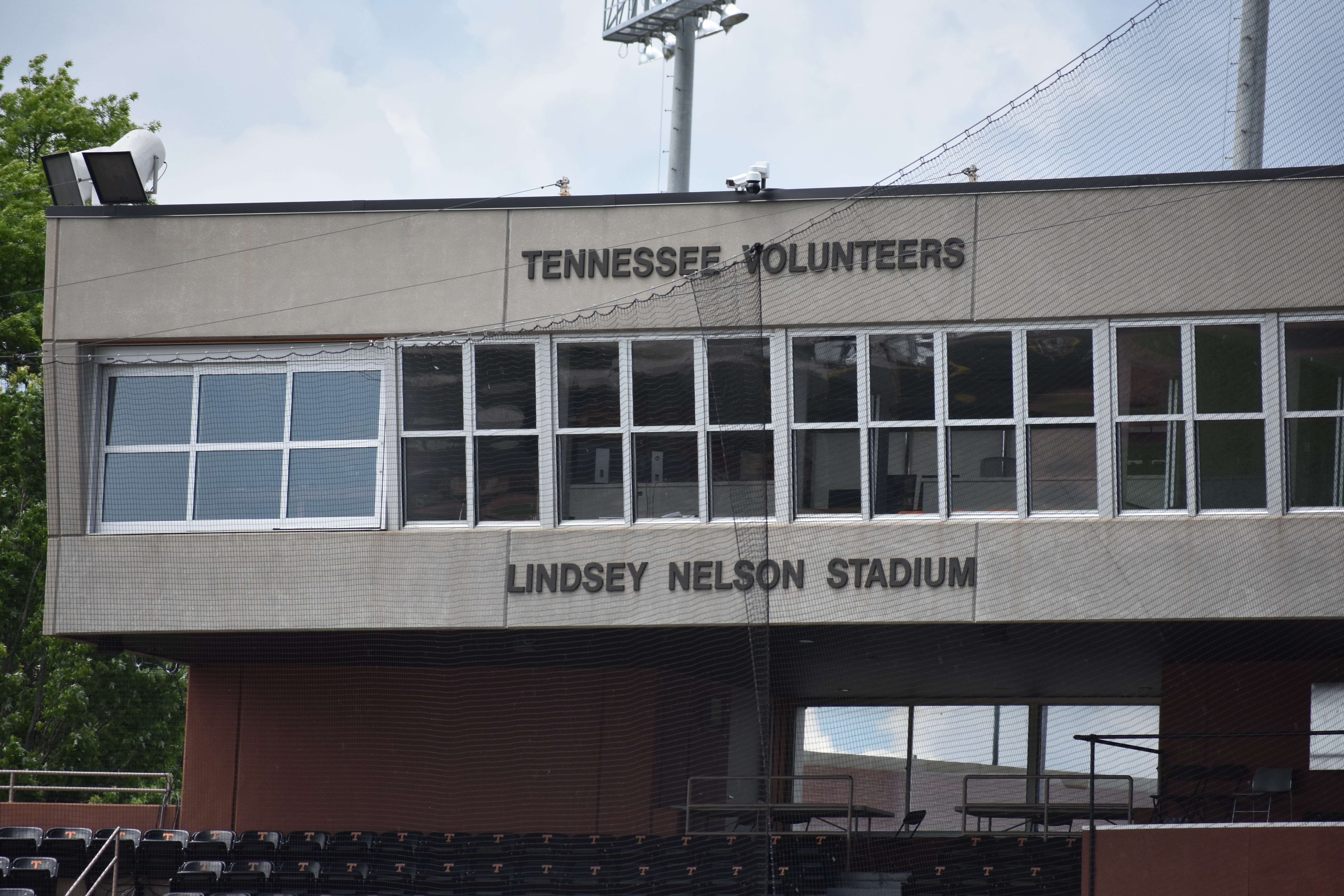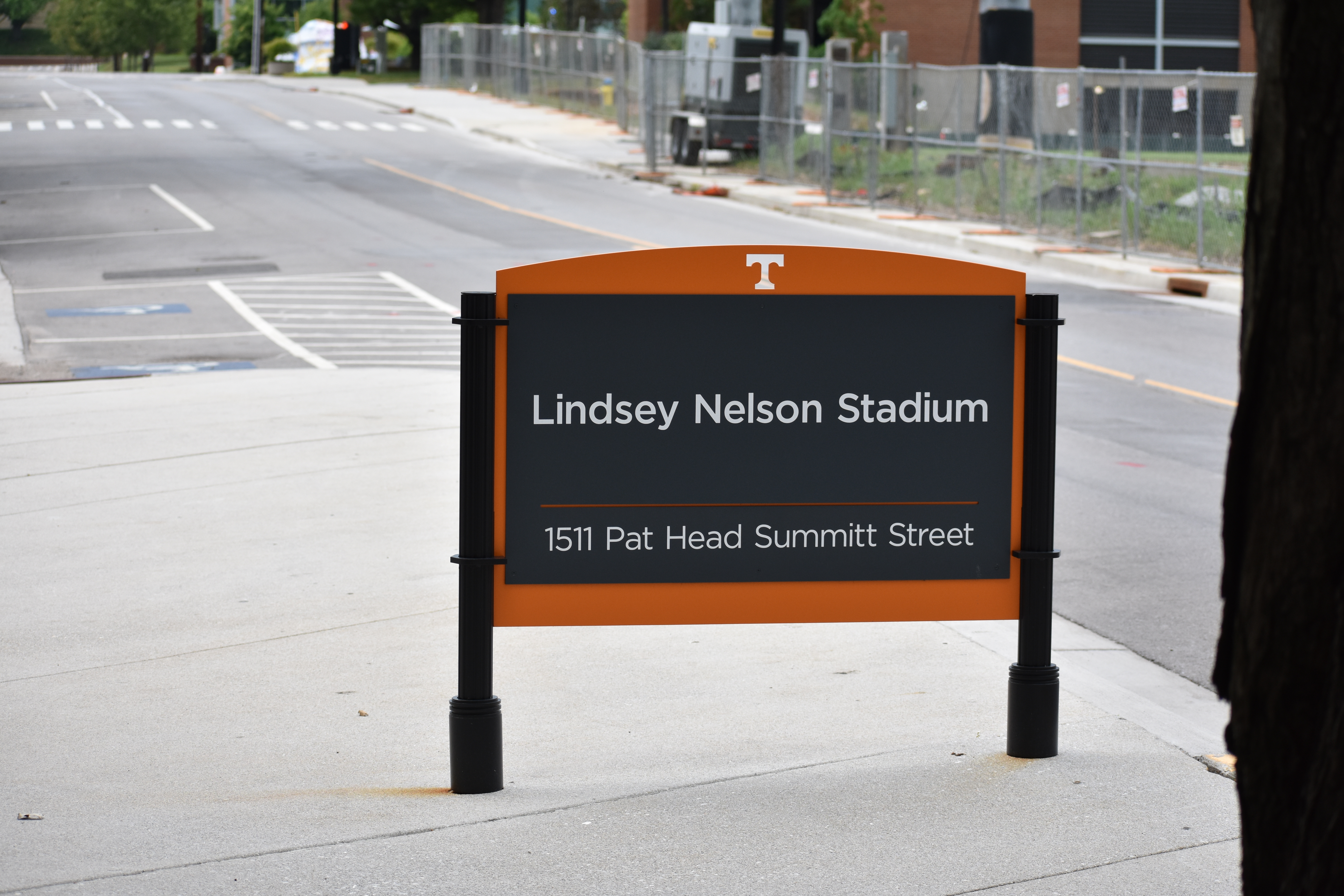KNOXVILLE - When Chris Burke was traveling through the Southeastern Conference as a standout baseball player for Tennessee from 1999 to 2001, it was clear that Mississippi State, LSU and Arkansas had the best stadiums in the conference.
Tennessee, in the heyday of Rod Delmonico's tenure as coach, played in a Lindsey Nelson Stadium that was less than a decade old. Though it was not considered elite, the stadium was by no means inferior.
"The facility, it was probably in the middle," Burke said in a phone interview last week.
Now as Burke travels throughout the league as an SEC Network analyst following his major league playing career, he sees Lindsey Nelson Stadium in a different light.
"Really, Tennessee has kind of been left behind as far as a baseball facility upgrade," Burke said.
The decline of the stadium's prestige compared to its SEC counterparts has coincided with a decline in the Tennessee baseball program, which made the College World Series in 2001 and 2005 but has not appeared in an NCAA regional since.
"To think we have the number-two football facility (in the SEC) and number-two basketball facility and number 13 in baseball just seems out of whack," Burke said. "Now I don't think we should have number-two baseball with where we are today, but to think that we are at the back of the league doesn't really add up to who we've always been from a historic standpoint."
The SEC tournament begins today in Hoover, Alabama, with the Volunteers on the outside looking in for the eighth time in 11 years. In that time, nearly every other university in the league has invested millions of dollars to improve the appearance of its baseball stadium.
Tennessee's progress has stalled, but change could be on the horizon.
Fulmer promises help
Athletic director Phillip Fulmer suggested on the Big Orange Caravan tour last week that he plans for the 26-year-old stadium to receive a significant upgrade during his time as athletic director.
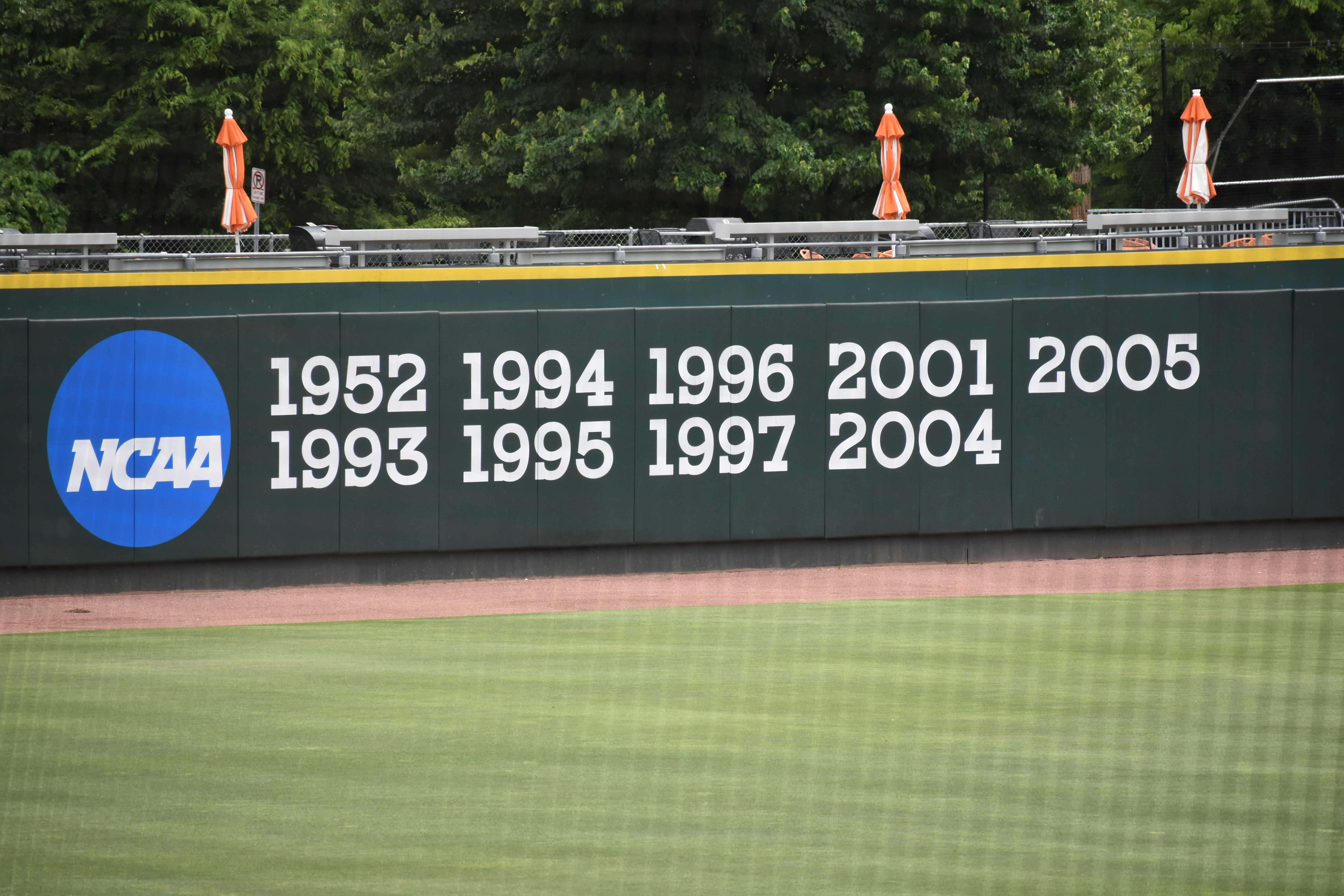 The outfield wall at Lindsey Nelson Stadium recognizes each year that Tennessee has qualified for an NCAA regional. Since the last time UT qualified for a regional, nearly every other school in the Southeastern Conference has made significant upgrades to its baseball stadium. Several aspects of Lindsey Nelson Stadium now lag behind league standards.
The outfield wall at Lindsey Nelson Stadium recognizes each year that Tennessee has qualified for an NCAA regional. Since the last time UT qualified for a regional, nearly every other school in the Southeastern Conference has made significant upgrades to its baseball stadium. Several aspects of Lindsey Nelson Stadium now lag behind league standards."Some people are doing a 50-million-dollar stadium here," Fulmer said. "We're not doing that. Don't even go there. But we're going to do something that helps our baseball coach."
After years as an assistant coach at Missouri, TCU and Arkansas, first-year head coach Tony Vitello led the Vols to a match this season of their best SEC win total since 2007. Tennessee finished 12-18 in SEC play - a five-win improvement of their 7-21 record in Dave Serrano's final season as coach in 2017. It's the first time since the league tournament expanded to 12 teams in 2013 that a squad with 12 SEC victories has been left out of the field.
Although next month's major league draft could have a major impact on the final standing of the class, Tennessee's 2018 signing class is ranked sixth in the nation by Perfect Game at the moment.
Fulmer described the 39-year-old Vitello last week as "so much fun and so intense." Since taking over as athletic director in December, Fulmer has made a mantra out of asking his coaches what they need to be competitive in the SEC.
Though Lindsey Nelson Stadium would rank among the best stadiums in many conferences, there is little question it needs to be modernized to keep pace in the SEC.
"I pushed them all: 'What do you need to be in the SEC hunt?'" Fulmer said of his conversations with Tennessee's coaches. "If you're not winning it, why aren't you? And how do we get there? I've got to back up what I say. Our baseball coach needs some help with our facility."
Transformation incomplete
Tennessee unveiled a plan to "transform" Lindsey Nelson Stadium in 2006 with the goal of turning the stadium into "a premier baseball facility" that would "enable the Vols to compete at a championship level."
At the time, the program was a year removed from its second College World Series appearance of the decade, and Vanderbilt's rise to baseball supremacy within the state was in its infancy.
The "Campaign for Tennessee Baseball" was an ambitious project that called for 16 luxury suites, a new press box tower, a left-field entrance plaza and more. But only two of the campaign's proposed four phases were completed.
The most substantial work done through the campaign was the construction of an indoor hitting and pitching facility and the addition of a 3,000-square-foot workout facility. Those items, along with major investment in the locker room, clubhouse and coaches offices have kept Tennessee competitive in the SEC from a player development standpoint.
But the proposed press box tower, luxury suites, new entrance plaza and other major changes that would have improved the overall feel of the ballpark went unfinished.
"I don't think we need to run out there and build a 10- or 12,000-seat stadium," Burke said. "But I do think we need a brand new outward look to the facility. I think we need a total redo of the press box. To think that the University of Tennessee has a baseball facility with no luxury boxes doesn't make any sense."
Upgrades elsewhere
Three SEC schools - Florida, Kentucky and Mississippi State - are in the process of baseball-facility upgrades costing between $49 and $55 million each. Alabama recently completed a $42 million project, and those are just the league's most recent and most costly upgrades.
"It's been an explosion, especially if you count the ones that are in the works," Burke said.
Fulmer's words indicate that Tennessee's baseball stadium investment will not approach those prices, but there is plenty that could be done for less.
A $12 million "Foley Field Revival" at Georgia, completed for the 2016 season, brought a new entrance plaza, expanded concourses, new luxury seating areas, an expanded press box and several improvements to player development areas.
Georgia has not appeared in an NCAA regional since 2008. It's the longest streak without a regional appearance in the SEC other than Tennessee's, which is three seasons longer.
But that will change at the end of next week. With the nation's No. 3 RPI heading into the SEC tournament, Georgia is on track to host an NCAA regional at its improved stadium.
"When recruits and their family see that a university is going to support their son when they come here in every way, shape and form, it makes them feel very comfortable, and that's one of the things that this stadium does," Georgia coach Scott Stricklin told Baseball America as the Foley Field renovation neared completion.
Now the players Stricklin was recruiting at the time have revived the Georgia program.
Burke believes baseball programs in the SEC can generate some positive momentum without a massive facility investment, but he suggested that sustaining an elite program requires a level of steady commitment.
"In the Southeastern Conference, if you want to be year in and year out great, I do think you need to prove to recruits - simply because of who you're going up against - that you're serious about baseball," Burke said. "And there are so many games on TV, that there's a bit of it where you need to show that you're investing in it to the audience and specifically to the recruits in the amateur community just to show who Tennessee is, that they're making a statement that they are trying to play baseball at an elite level."
Contact David Cobb at dcobb@timesfreepress.com. Follow him on Twitter @DavidWCobb and on Facebook at facebook.com/volsupdate.
